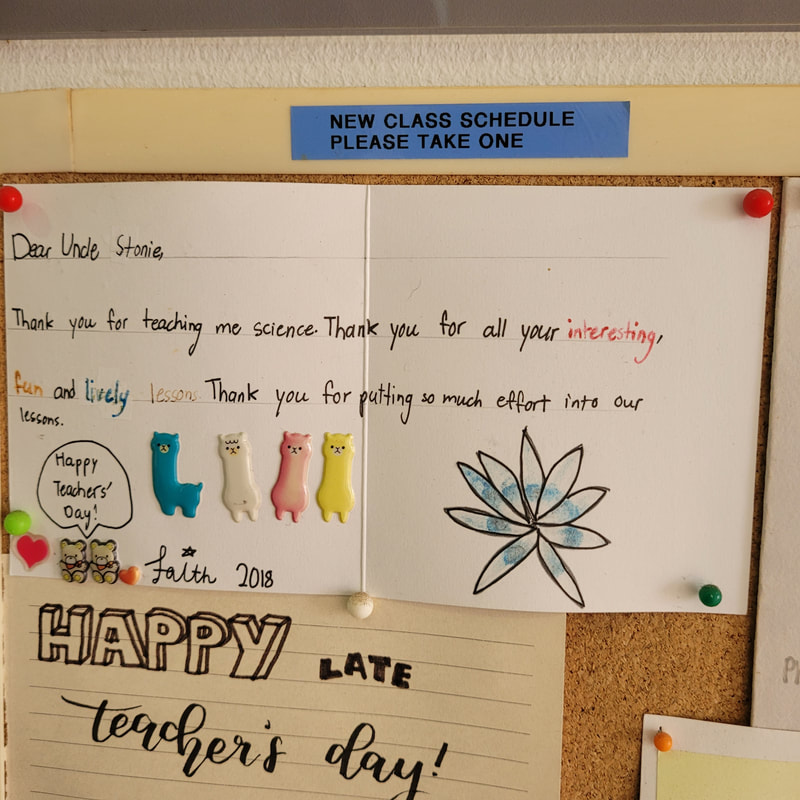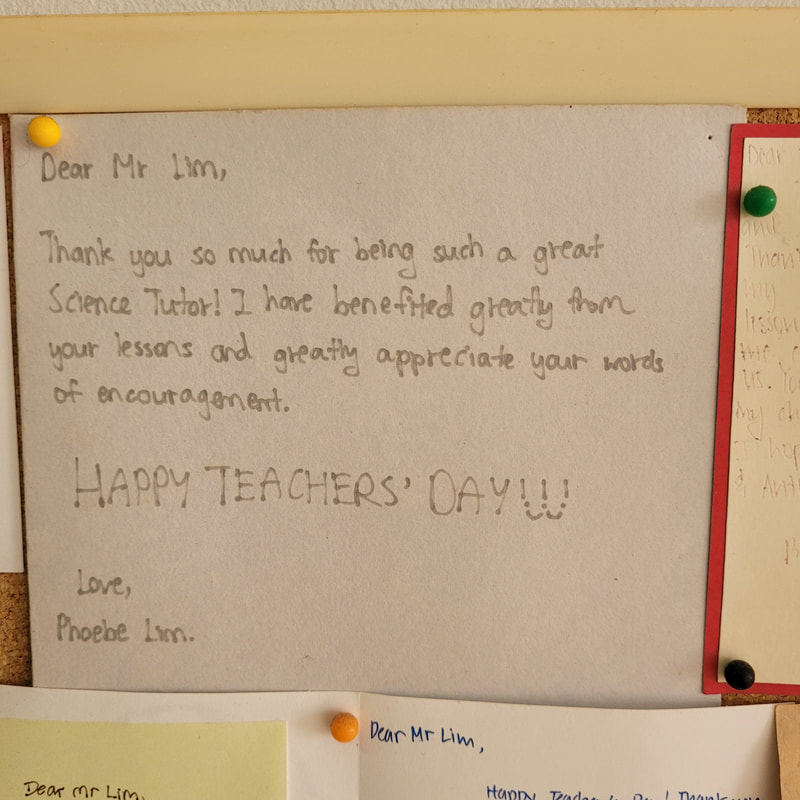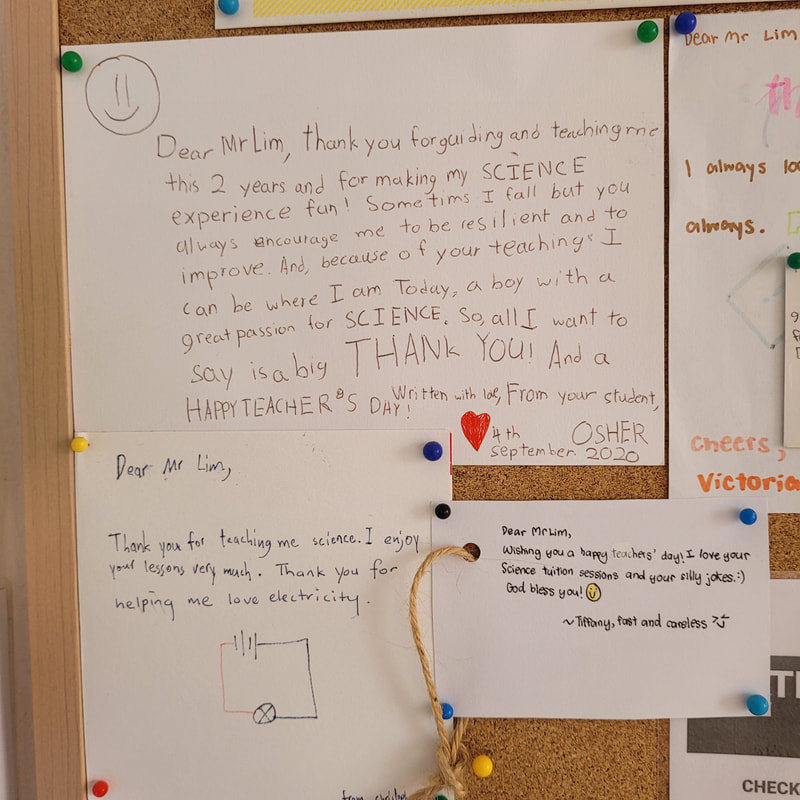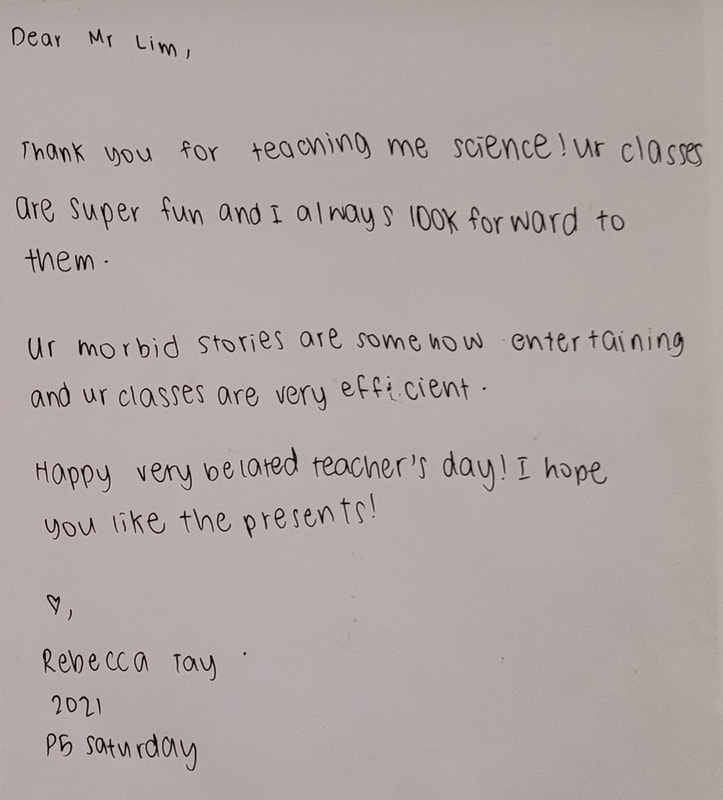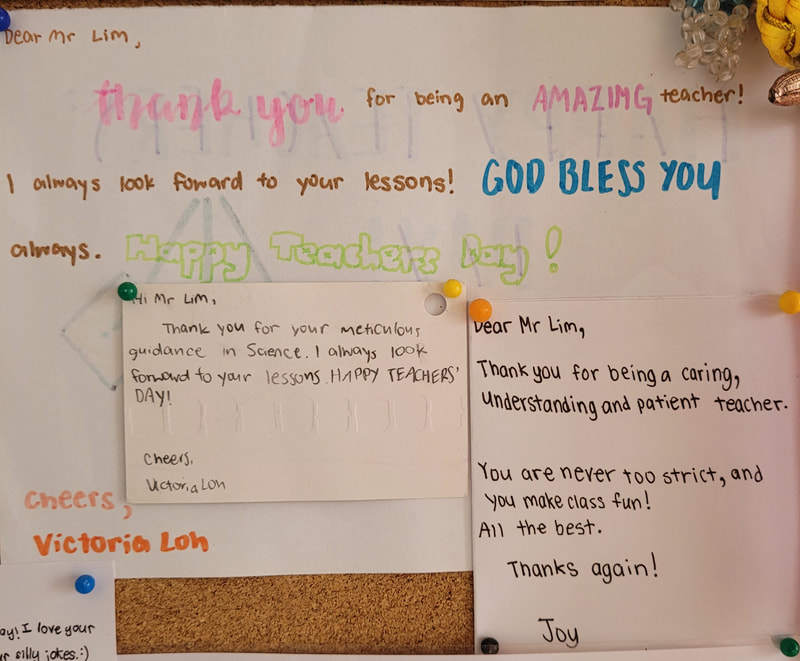
Primary Science: We offer Science classes for all primary levels from Primary 3 to Primary 6.
The current Science Paper is an application-based paper, it is no longer just focusing on rote learning of "Model Answers" or the recall of facts. Besides content knowledge, the paper has a large emphasis (60%) on the application of skills namely Process Skills (a.k.a Scientific Investigative Skills), Analysis Skills and Question-Answering Skills that are specific to the discipline. Beyond a solid grounding in content knowledge, we focus strongly on the building of such skills to improve our students' question-answering techniques for the National Examinations.
Why Question-Answering Techniques? Scientific answers differ from those in casual conversations or in other subject matters.
Science is an evidence-based discipline. A good scientific explanation has to be substantiated by strong, relevant evidence and therefore requires a very careful and thorough analysis of all information and data given.
Science is also very precise in nature. When crafting a science explanation, phrasing has to be specific and coupled with the correct use of scientific terms in order to convey the right concept.
When the analysis of data/information is not thorough or correct, when the phrasing of an answer is not specific or does not convey the correct concept, even a student who is strong in content will struggle to do well. To have a full head of scientific facts alone does not equate a good scientific explanation/answer. Effective question-answering skills are key to doing well for both the open-ended component as well as to discern the options given in each multiple choice question.
The current Science Paper is an application-based paper, it is no longer just focusing on rote learning of "Model Answers" or the recall of facts. Besides content knowledge, the paper has a large emphasis (60%) on the application of skills namely Process Skills (a.k.a Scientific Investigative Skills), Analysis Skills and Question-Answering Skills that are specific to the discipline. Beyond a solid grounding in content knowledge, we focus strongly on the building of such skills to improve our students' question-answering techniques for the National Examinations.
Why Question-Answering Techniques? Scientific answers differ from those in casual conversations or in other subject matters.
Science is an evidence-based discipline. A good scientific explanation has to be substantiated by strong, relevant evidence and therefore requires a very careful and thorough analysis of all information and data given.
Science is also very precise in nature. When crafting a science explanation, phrasing has to be specific and coupled with the correct use of scientific terms in order to convey the right concept.
When the analysis of data/information is not thorough or correct, when the phrasing of an answer is not specific or does not convey the correct concept, even a student who is strong in content will struggle to do well. To have a full head of scientific facts alone does not equate a good scientific explanation/answer. Effective question-answering skills are key to doing well for both the open-ended component as well as to discern the options given in each multiple choice question.

Mr Johnstone Lim started his teaching career after graduating from the National Institute of Education (Singapore) in 1992. His teaching stint with The Ministry of Education which spanned two decades and many schools, saw him deployed to work with students of diverse profiles/background, both in neighbourhood schools and mission schools, co-ed as well as non co-ed schools. His diverse teaching experience was further enhanced through his attachment to the Ministry of Education HQ where he had the opportunity to work with various expert groups from countries within the region as well as those beyond. As a trainer with the Ministry of Education, he was involved in the conduct of workshops and training for senior education officers, leaders as well as teachers, developing them in the use of technology to enhance teaching and learning. In schools, he held various portfolios including the HOD for Science at Anglo-Chinese School (Primary) as well as HOD for Science/Senior Teacher (Science) at CHIJ St Nicholas Girls School. His roles and responsibilities included the supervision of resource building and creation, professional development and guidance of teachers and potential school managers as well as the mapping of the department’s long and short term strategies. His portfolios beyond schools included that of PSLE Examiner for both English and Science, Chief Presiding Examiner for PSLE written and oral papers as well as Assistant Supervising Marker at PSLE Marking Centres for Science. His job scopes included the management of the national examination process at designated centres as well as the supervision of marking of examination scripts by teachers at various national marking centres. All these entail a very clear knowledge of the various subject matters and the primary examination process.
